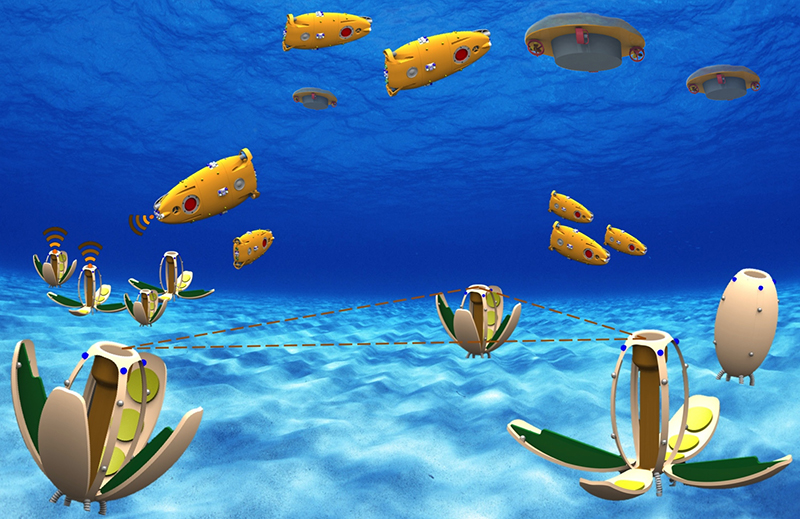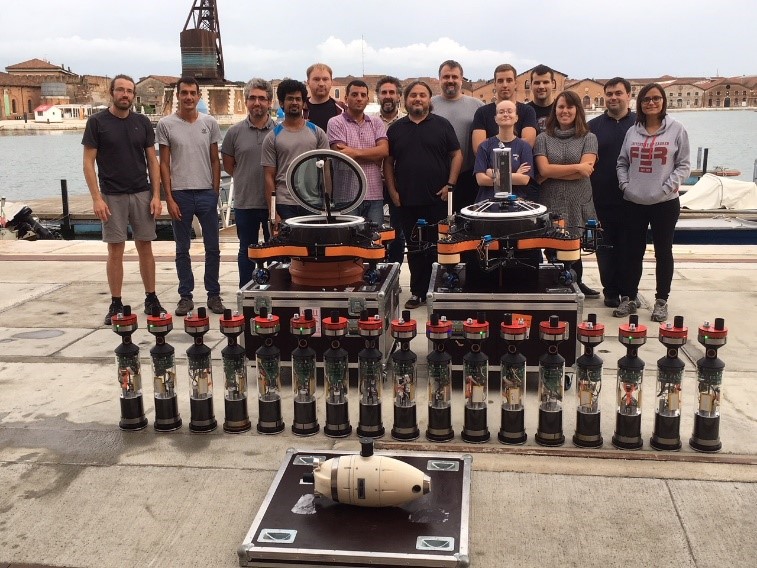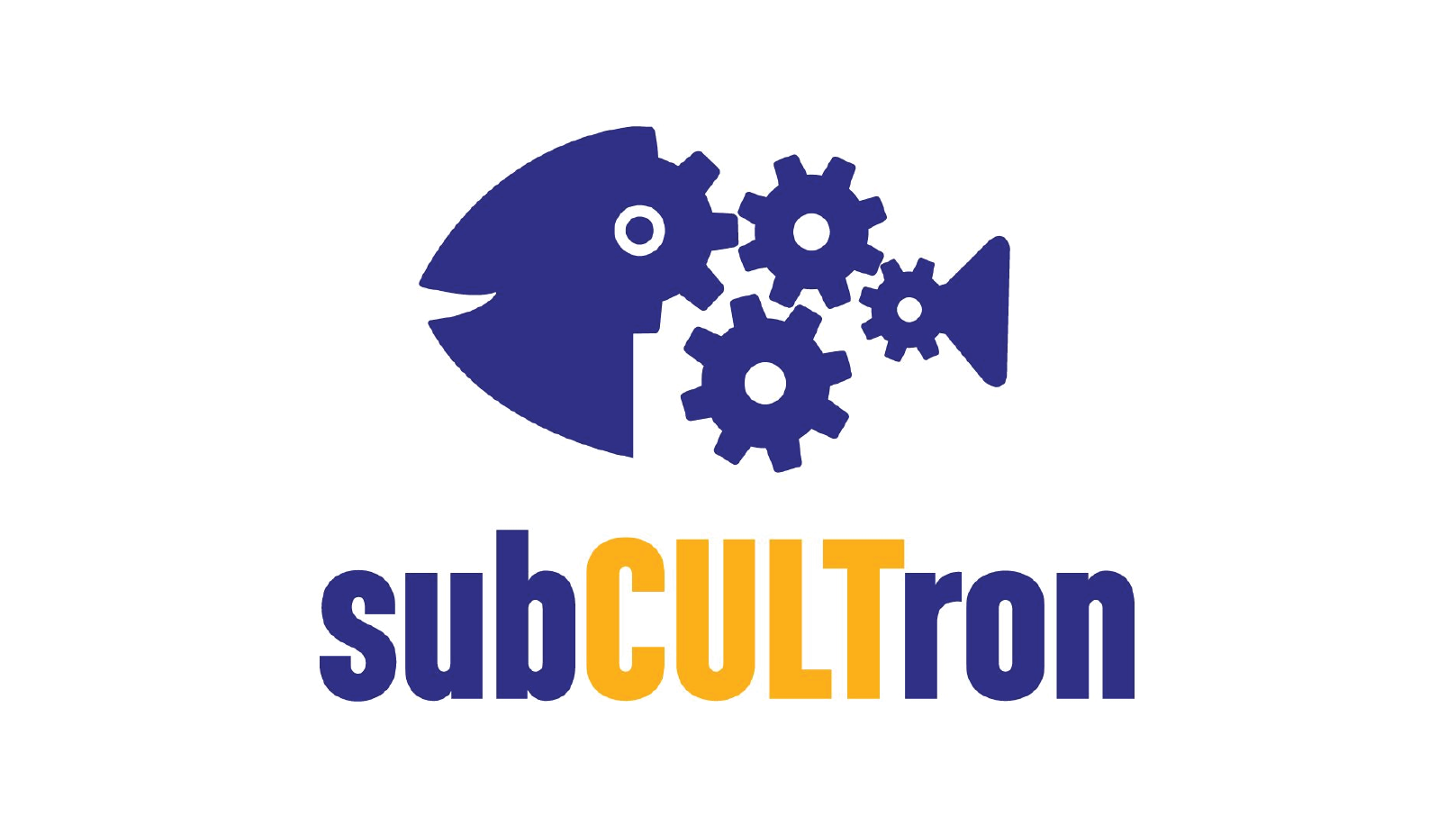 Project name: Submarine Cultures Perform Long-Term Robotic Exploration of Unconventional Environmental Niches
Project name: Submarine Cultures Perform Long-Term Robotic Exploration of Unconventional Environmental Niches
Project acronym: subCULTron
Dates: 01.04.2015 - 30.04.2019
Total budget: 3 987 651 EUR
Funding: EU Horizon 2020, FET Proactive
Grant Agreement number: 640967
website: http://zool33.uni-graz.at/artlife/subCULTron
subCULTron
subCULTron aims for achieving long-term autonomy in a learning, self-regulating, self-sustaining underwater society/culture of robots in a high-impact application area: Venice, Italy.
One of the envisioned goals of the subCULTron project is to develop an underwater multi-robot system for intelligent long-term monitoring of underwater ecosystems. The underwater system is comprised of 3 different types of robots. Artificial mussels (aMussels) are sensor hubs attached to the sea-ground, which monitor the natural habitat, including biological agents like algae, bacterial incrustation, and fish. They serve as the collective long-term memory of the system, allowing information to persist beyond the runtime of other agents, enabling the system to continue developing from previously learned states. On the water surface, artificial lily pads (aPads) interface with the human society, delivering energy and information influx from ship traffic or satellite data. Between those two layers, artificial fish (aFish) move, monitor and explore the environment and exchange information with aMussels and aPads.
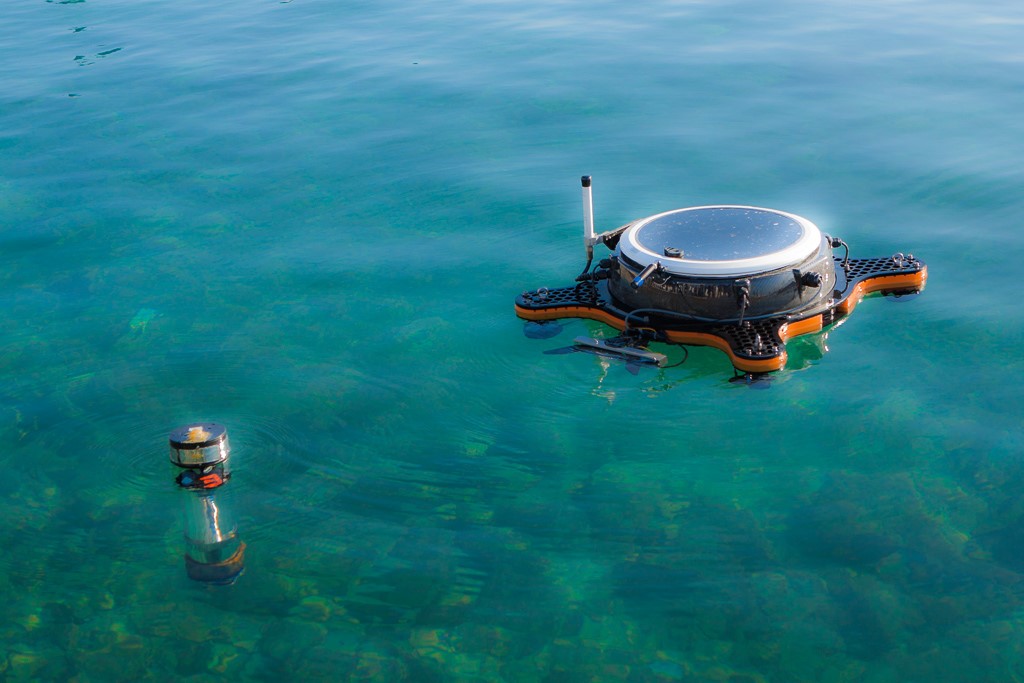
aPad
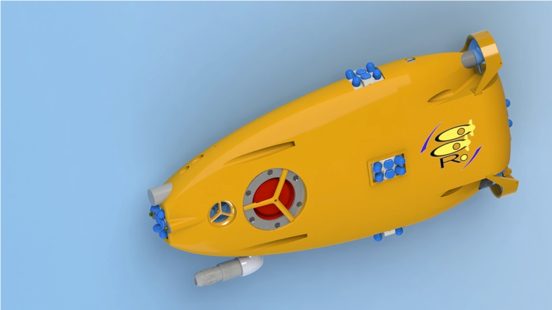
aFish
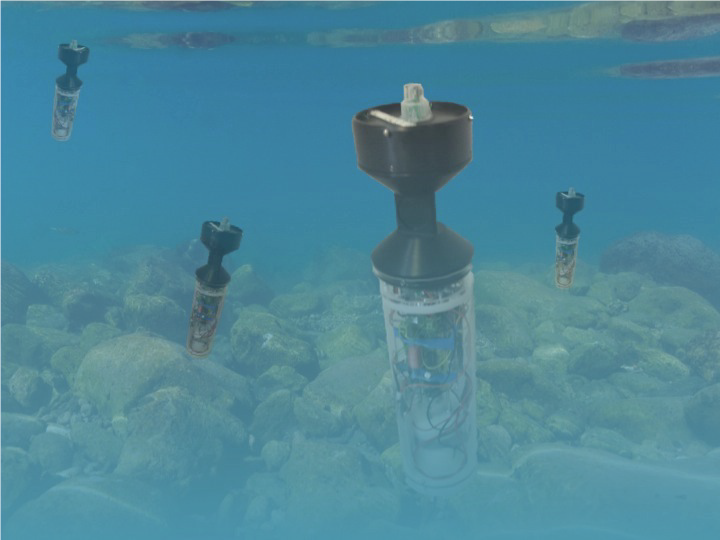
aMussel
This project is developed by:
- University of Graz – Artificial Life Lab (AT)
- Université Libre de Bruxelles (BE)
- CYBERTRONICA RESEARCH - Research Center of Advanced Robotics and Environmental Science (CH)
- ARMINES: Co-leader of Artificial systems and Bioinspired behaviours (FR)
- SSSA Scuola Superiore Sant’Anna (IT)
- UNIZG-FER University of Zagreb Faculty of Electrical Engineering and Computing (HR)
- CORILA: Consortium for coordination of research activities concerning the Venice lagoon system (IT)
At the end of July 2017, an “Assembly Workshop” for the project subCULTron was held at the Faculty of Electrical Engineering and Computing, with two laboratories from Zagreb participating – LARICS and LABUST.
During the assembly workshop, the project consortium assembled and tested 20 aMussel platforms and assembled the first aFish robot. This is the first step of the mass production of underwater heterogeneous swarm where the ultimate goal is to develop 150 robot platforms. The workshop was successful and we all enjoyed working on the platforms as well as spending quality time with the members of the subCULTron consortium.



